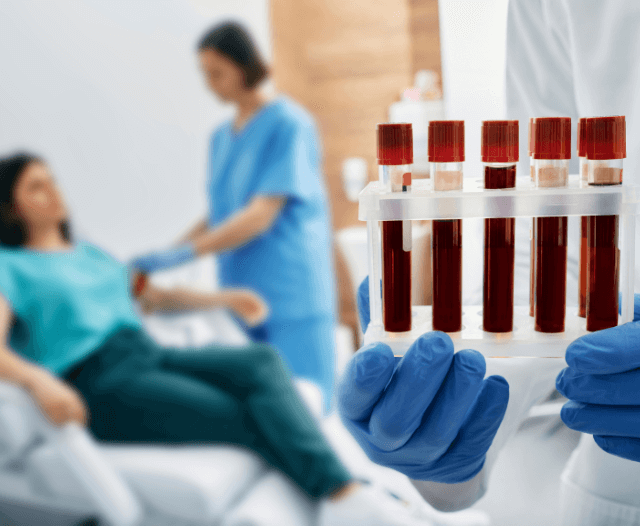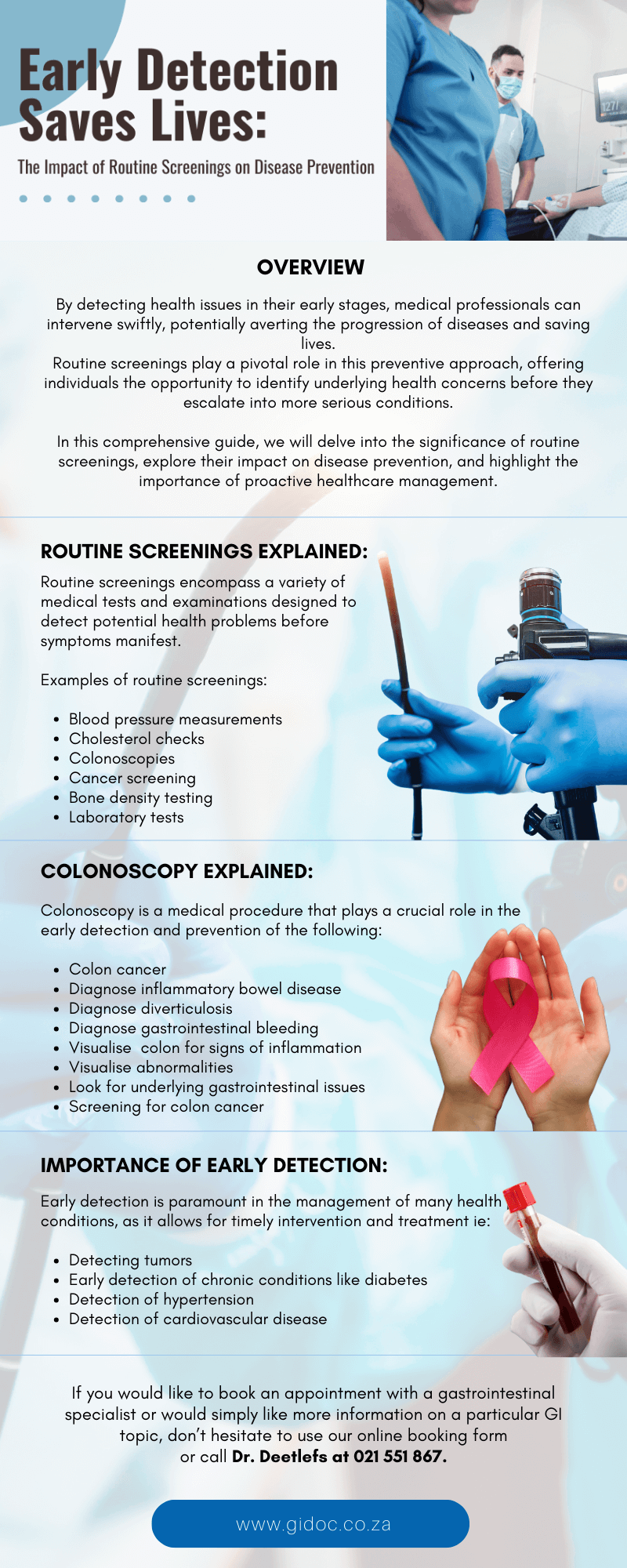Overview
In the realm of healthcare, prevention is often hailed as the cornerstone of well-being.
By detecting health issues in their early stages, medical professionals can intervene swiftly, potentially averting the progression of diseases and saving lives.
Routine screenings play a pivotal role in this preventive approach, offering individuals the opportunity to identify underlying health concerns before they escalate into more serious conditions.
In this comprehensive guide, we will delve into the significance of routine screenings, explore their impact on disease prevention, and highlight the importance of proactive healthcare management.
Understanding Routine Screenings
Routine screenings encompass a variety of medical tests and examinations designed to detect potential health problems before symptoms manifest.
These screenings are typically recommended based on factors such as age, gender, family history, and lifestyle habits.
Examples of routine screenings include blood pressure measurements, cholesterol checks, mammograms, Pap smears, colonoscopies, and various laboratory tests.
Colonoscopy Explained
Colonoscopy is a medical procedure that plays a crucial role in the early detection and prevention of colorectal cancer and other gastrointestinal conditions.
During a colonoscopy, a flexible tube called a colonoscope is inserted into the rectum and guided through the colon, allowing the physician to visually inspect the lining of the large intestine. This procedure is typically performed under sedation to ensure patient comfort and relaxation throughout the examination.
One of the primary purposes of a colonoscopy is to screen for colorectal cancer, the third most common cancer worldwide.
Colorectal cancer often begins as small growths called polyps, which can develop on the inner lining of the colon or rectum.
While most polyps are benign, some may progress to cancer over time. During a colonoscopy, the physician can identify and remove any suspicious polyps, reducing the risk of colorectal cancer development.
In addition to colorectal cancer screening, colonoscopies are also used to diagnose and evaluate various gastrointestinal conditions such as inflammatory bowel disease (IBD), diverticulosis, and gastrointestinal bleeding.
The procedure allows the physician to visually inspect the colon for signs of inflammation, ulceration, or other abnormalities that may indicate underlying gastrointestinal issues.
Colonoscopies are recommended for individuals at average risk for colorectal cancer starting at age 45 to 50, with follow-up screenings typically recommended every 10 years thereafter.
However, individuals with certain risk factors, such as a family history of colorectal cancer or a personal history of inflammatory bowel disease, may require earlier or more frequent screenings.
It is essential for individuals to discuss their screening recommendations with their healthcare provider to determine the most appropriate screening schedule based on their individual risk factors and medical history.
While the thought of undergoing a colonoscopy may be intimidating for some, it is essential to recognize the life-saving potential of this procedure.
Colorectal cancer is highly treatable when detected early, with a five-year survival rate of over 90% for localized stage colorectal cancer.
By undergoing regular colonoscopies as recommended, individuals can significantly reduce their risk of developing colorectal cancer and improve their chances of successful treatment and survival in the event of a cancer diagnosis.
In conclusion, colonoscopy is a vital tool in the prevention, early detection, and management of colorectal cancer and other gastrointestinal conditions.
By undergoing regular screenings as recommended, individuals can take proactive steps to protect their health and well-being.
While the procedure may seem daunting, the potential benefits far outweigh any temporary discomfort or inconvenience.
It is essential for individuals to prioritize their colorectal health and discuss their screening options with their healthcare provider to ensure timely and appropriate care.
The Importance of Early Detection
Early detection is paramount in the management of many health conditions, as it allows for timely intervention and treatment.
For instance, in the case of cancer, detecting tumors at an early stage often enables more effective treatment options and improves overall prognosis.
Similarly, early detection of chronic conditions such as diabetes, hypertension, and cardiovascular disease can lead to better outcomes and reduce the risk of complications.
Disease Prevention Through Screening
Routine screenings serve as a proactive measure to prevent disease by identifying risk factors and detecting abnormalities in their nascent stages.
By identifying potential health concerns early on, individuals can take appropriate steps to mitigate risks and make lifestyle modifications that promote better health outcomes.
For example, individuals identified as at risk for developing type 2 diabetes through blood glucose screenings can implement dietary changes, exercise regularly, and monitor their blood sugar levels to prevent or delay the onset of the disease.
Screening Guidelines and Recommendations
Guidelines for routine screenings vary depending on factors such as age, gender, and individual risk factors.
Healthcare organizations and professional medical associations regularly update screening guidelines based on the latest research and evidence-based practices.
It is essential for individuals to consult with their healthcare providers to determine which screenings are appropriate for their age, health status, and medical history.
Common Types of Routine Screenings
- Blood Pressure Measurement: High blood pressure, or hypertension, is a significant risk factor for cardiovascular disease and stroke. Routine blood pressure checks can help identify hypertension early and initiate appropriate management strategies.
- Cholesterol Testing: High cholesterol levels can contribute to the development of heart disease and stroke. Regular cholesterol screenings assess lipid levels in the blood, allowing for early intervention through lifestyle changes or medication.
- Cancer Screenings: Cancer screenings such as mammograms, Pap smears, prostate-specific antigen (PSA) tests, and colonoscopies are critical for detecting various types of cancer in their early stages when treatment is most effective.
- Diabetes Screening: Screening for diabetes involves assessing blood glucose levels through tests such as fasting blood sugar tests, oral glucose tolerance tests, and hemoglobin A1c tests. Early detection of diabetes allows for prompt intervention and management to prevent complications.
- Bone Density Testing: Bone density screenings, such as dual-energy X-ray absorptiometry (DXA) scans, assess bone strength and density, helping to diagnose osteoporosis and assess fracture risk.
Overcoming Barriers to Screening
Despite the clear benefits of routine screenings, several barriers may prevent individuals from undergoing recommended tests.
These barriers may include lack of awareness, fear or anxiety about the screening process, financial constraints, and cultural or language barriers.
Healthcare providers play a crucial role in addressing these barriers by providing education, offering support and encouragement, and ensuring access to affordable screening services.
Conclusion: Empowering Health Through Early Detection
Routine screenings are invaluable tools for disease prevention and early detection, offering individuals the opportunity to take proactive control of their health and well-being.
By undergoing recommended screenings according to established guidelines and recommendations, individuals can identify potential health concerns early, enabling timely intervention and treatment.
Ultimately, early detection saves lives, underscoring the importance of routine screenings in safeguarding health and promoting longevity.
Dr. Deetlefs has earned the reputation of a trusted health expert providing consultative, diagnostic, and therapeutic endoscopic and related services to patients in Cape Town and beyond.
Dr. Deetlefs can be contacted to confirm the estimated breakdown should you be interested in having the procedure done.
DISCLAIMER: PLEASE READ CAREFULLY
The information on this website is to provide general guidance. In no way does any of the information provided reflect definitive medical advice and self-diagnoses should not be made based on information obtained online. It is important to consult a Gastroenterologist or medical doctor regarding ANY and ALL symptoms or signs including, but not limited to: abdominal pain, haemorrhoids or anal / rectal bleeding as it may a sign of a serious illness or condition. A thorough consultation and examination should ALWAYS be performed for an accurate diagnosis and treatment plan. Be sure to call a physician or call our office today and schedule a consultation.
© Dr. Eduan Deetlefs, Registered Gastroenterologist, GI Doc Cape Town
Our website information is not intended or implied to be a substitute for professional medical advice, diagnosis or treatment. Please consult a doctor about your specific condition. Only a trained physician can determine an accurate diagnosis and proper treatment.






